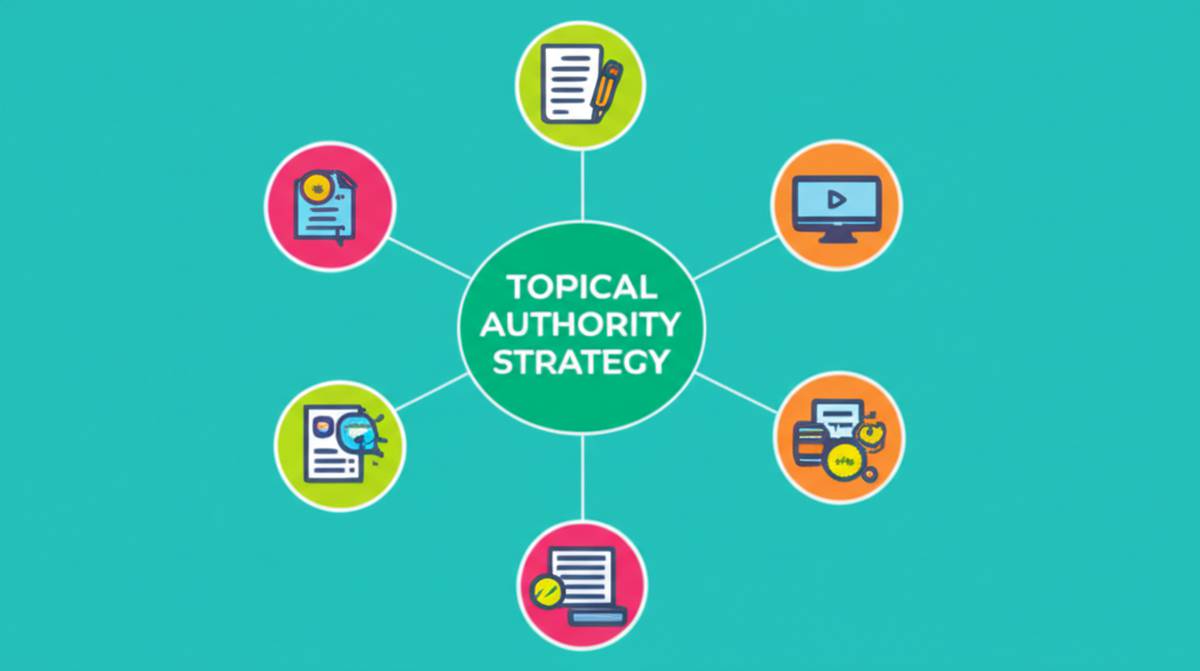In today’s crowded digital landscape, simply creating content isn’t enough. To truly stand out and attract your ideal audience, you need to establish topical authority. This isn’t just about ranking for a few keywords; it’s about becoming the go-to resource for everything related to your niche. Think of it as building a digital fortress of knowledge that Google and your audience will recognize and reward. Ready to build your empire? Let’s dive in.
What is Topical Authority and Why Does It Matter?
Topical authority refers to the extent to which a website is perceived as an expert on a particular subject. Google’s algorithm increasingly favors websites that demonstrate comprehensive knowledge and provide in-depth coverage of a specific topic. This means going beyond basic keyword optimization and creating a rich ecosystem of content that addresses all aspects of your chosen field. Building topical authority impacts:
- SEO Rankings: Higher rankings for a broader range of keywords.
- Organic Traffic: Increased visibility and more visitors finding your website.
- Brand Credibility: Enhanced trust and recognition as a thought leader.
- Lead Generation: Attracting more qualified leads interested in your expertise.
- Long-Term Sustainability: Creating a valuable asset that continues to drive results.
In essence, topical authority transforms your website from just another voice into a respected and influential presence in your industry. And it also plays a part in optimizing your digital income!
How to Strategically Build Topical Authority
Building topical authority isn’t an overnight process, but a strategic and consistent effort. Here’s a step-by-step guide:
1. Define Your Niche and Target Audience
Start by clearly defining your niche. What specific area do you want to dominate? Who are you trying to reach? Understanding your audience’s needs, pain points, and search behavior is crucial for creating content that resonates. For example, Billionmode focuses on helping people build wealth and live fulfilling lives, and our target audience are ambitious individuals seeking financial freedom.
2. Conduct Thorough Keyword Research
Keyword research is the foundation of any successful content strategy. Identify the core keywords related to your niche, as well as long-tail keywords and related questions that your audience is searching for. Use tools like Google Keyword Planner, Ahrefs, or SEMrush to uncover valuable insights. Don’t just focus on high-volume keywords; also consider low-competition keywords that you can easily rank for.
3. Create a Content Cluster Strategy
A content cluster consists of a main “pillar” page that covers a broad topic, and several “cluster” pages that delve into specific subtopics. The pillar page acts as a central hub, linking to all the cluster pages, and vice versa. This creates a network of interconnected content that signals to Google that you have comprehensive knowledge of the subject. This is also a concept we cover at Billionmode’s Blog.
Example:
- Pillar Page: Investing for Beginners
- Cluster Pages:
- What are Stocks and Bonds?
- Understanding Mutual Funds
- The Importance of Diversification
- How to Choose a Brokerage Account
4. Develop High-Quality, In-Depth Content
Once you have your content cluster strategy in place, it’s time to start creating content. Focus on producing high-quality, in-depth articles, blog posts, videos, podcasts, and infographics that provide valuable information and address your audience’s needs. Each piece of content should be well-researched, well-written, and optimized for SEO.
5. Optimize for On-Page SEO
Pay attention to on-page SEO factors, such as:
- Title Tags: Use relevant keywords in your title tags to improve click-through rates.
- Meta Descriptions: Write compelling meta descriptions that entice users to click.
- Header Tags: Use header tags (H1, H2, H3, etc.) to structure your content and make it easier to read.
- Image Alt Text: Optimize your image alt text with relevant keywords.
- Internal Linking: Link to other relevant pages on your website to improve site navigation and spread link juice.
6. Build High-Quality Backlinks
Backlinks are links from other websites to your website. They are a crucial ranking factor for SEO. Focus on building high-quality backlinks from reputable websites in your niche. Guest blogging, outreach, and creating valuable content that people want to link to are effective strategies for building backlinks.
7. Promote Your Content
Don’t just create content and expect people to find it. Promote your content through social media, email marketing, and other channels. Engage with your audience and build a community around your brand. Consider automating your content promotion with AI automation tools.
8. Track Your Results and Iterate
Use Google Analytics and other analytics tools to track your progress and identify areas for improvement. Monitor your keyword rankings, organic traffic, and engagement metrics. Analyze your data and make adjustments to your content strategy as needed. Building wealth takes time, and so does building topical authority, but by measuring results you can get there sooner!
Tools and Resources for Building Topical Authority
Several tools and resources can help you build topical authority:
- Google Keyword Planner: For keyword research.
- Ahrefs: For keyword research, backlink analysis, and competitor analysis.
- SEMrush: For keyword research, backlink analysis, and SEO auditing.
- BuzzSumo: For content research and social media monitoring.
- Google Search Console: For tracking your website’s performance in Google Search.

Examples of Websites with Strong Topical Authority
Looking for inspiration? Here are some examples of websites that have successfully built topical authority:
- Investopedia: A comprehensive resource for investing and personal finance (outbound link: https://www.investopedia.com/).
- Healthline: A trusted source for health information.
- Search Engine Journal: A leading publication for SEO and digital marketing.
Common Mistakes to Avoid
Avoid these common mistakes when building topical authority:
- Creating Thin Content: Focus on quality over quantity.
- Ignoring Keyword Research: Don’t guess what your audience is searching for.
- Neglecting On-Page SEO: Optimize your content for search engines.
- Failing to Promote Your Content: Get your content in front of your audience.
- Giving Up Too Soon: Building topical authority takes time and effort.
Remember, building topical authority also comes down to a positive money mindset and designing a life aligned with your goals, more on that at Billionmode’s Life Design section.
Ready to Dominate Your Niche?
Building topical authority is a powerful strategy for attracting more traffic, building brand credibility, and generating leads. By following the steps outlined in this guide, you can establish yourself as a leading expert in your field and achieve long-term success. Don’t wait – start building your topical authority today!
Want to take your business to the next level? Subscribe to the Billionmode newsletter for exclusive insights, strategies, and resources to help you build wealth, achieve freedom, and live a meaningful life. Click here to subscribe!
FAQ
Frequently Asked Questions
How long does it take to build topical authority?
Building topical authority is a long-term process that can take several months to a year or more, depending on the competitiveness of your niche and the quality and quantity of your content. Consistency and persistence are key.
Is topical authority the same as keyword ranking?
No, topical authority is broader than keyword ranking. While ranking for relevant keywords is important, topical authority encompasses the overall perception of your website as an expert on a particular subject. It’s about providing comprehensive coverage and demonstrating in-depth knowledge.
How do I measure my topical authority?
You can measure your topical authority by tracking your keyword rankings, organic traffic, engagement metrics (time on page, bounce rate), and brand mentions. Also, consider conducting a content audit to assess the depth and breadth of your content coverage.
By mastering topical authority, you are not only boosting your SEO but also creating a lasting legacy for your brand, a strategy that can be kickstarted when you start here.



